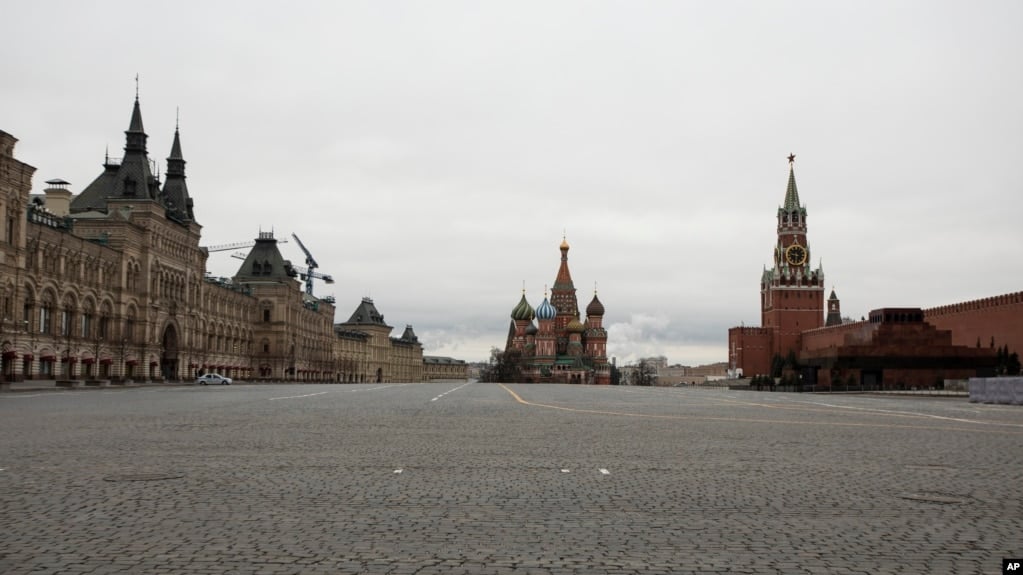By William Echols, for Polygraph
Nikolai Patrushev
Russian Security Council Secretary
“During the special military operation [in Ukraine], many facts were revealed confirming that such laboratories developed components of biological weapons and their means of delivery.”
Source: TASS, September 12, 2022
FALSE
Amid a Ukrainian military counteroffensive that has seen Kyiv retake key territory and put Moscow on its backfoot, Russia continues to push a debunked bioweapons conspiracy targeting the United States.

Late last month, state parties to the international Biological Weapons Convention began a formal consultative meeting following a request from Russia in June. The basis: Russia claims the United States is secretly developing bioweapons in Ukraine.
While that accusation has been repeatedly debunked, on September 12, Putin confidante and Secretary of the Security Council of Russia, Nikolay Patrushev, repeated the allegation that dozens of U.S. biolabs in Ukraine endanger Russia.
“The network of biolaboratories created by the U.S. around our country also poses a threat to the safety of the population. There were more than 30 of them in Ukraine alone,” Patrushev said.
“During the special military operation, many facts were revealed confirming that such laboratories developed components of biological weapons and their means of delivery.”
Problem is, there is no actual evidence that the United States has ever developed biological weapons in Ukraine.
Of course, Russia says there is, as in March, when the ambassador to the United Nations raised the issue before the Security Council, claiming with alarm that new documents had been found in occupied Ukraine.
Here is how the ambassador, Vasily Nebenzya, trumped up supposed evidence into a nefarious-sounding tale of conspiracy in May:
“As we take from the documents of Project 3007 ‘Monitoring of the epidemiological and environmental situation regarding hazardous diseases of aquatic origin in Ukraine’, Ukrainian specialists, supervised by American scientists, systematically collected water samples in a number of major Ukrainian rivers, including the Dnepr, Danube and Dniester, as well as in the North Crimean Canal.
“The goal was to determine the presence of particularly dangerous pathogens, including cholera, typhoid, hepatitis A and E pathogens, and draw conclusions about their possible waterborne spread to assess the damage properties of the selected samples. All the collected strains were subsequently exported to the USA.
“A question begs itself – what for? Why does the United States need a collection of dangerous pathogens that can spread in the rivers of that region?”
How about the explanation that it could be used to prevent an outbreak of disease?
Russian biologists inside and outside of Russia said the bioweapons research claim was an outright fabrication, the Intercept’s Robert Mackey reported.
The biologists, speaking at “risk to their safety,” said the documentation presented by Russia merely showed the innocent collection of pathogens for benign public health research, not for military purposes.
Moscow State University microbiologist Dr. Yevgeny Levitin told Sibir Realli, an outlet of the VOA’s sister organization Radio Free Europe\Radio Liberty, that the “deliberate lie” by Russia would “become obvious to any person who takes the trouble to simply carefully read the documents attached to the allegation of the creation of biological weapons in Ukraine.”
“That’s how propaganda works. The [Russian] Ministry of Defense made a false, unfounded statement – and now, if I talk to people, 90 percent of them will say: ‘Bioweapons were made in Ukraine,’” Levitin said.
Experts writing for the Bulletin of the Atomic Scientists likewise said outside specialists and independent journalists had found no evidence U.S. research in Ukraine supported “anything other than peaceful activities.”
Nor is the work hidden. “[U]kraine, unlike Russia, makes annual reports to the Biological Weapons Convention on its activities, known as confidence building measures, publicly available,” they wrote.
Take the case of German researchers, who openly collaborated with scientists in Ukraine to study bat parasites that potentially posed a risk to human health. Those parasites were shipped to Germany for DNA study and to identify pathogens.
The researchers presented their findings at a German Veterinary Society conference in 2021, the journal Science reported.
The German researchers were then surprised to find that their “very basic epidemiological research” was presented by Russia as proof of a “Western-funded bioweapons effort.”
“It’s very strange to be blamed for an almost absurd thing,” parasitologist Cornelia Silaghi, a leader of the collaboration, told Science. “The Russians must know it’s a lie.”
Montreal journalist Justin Ling reported that Moscow used the idea of destroying U.S. biolabs as one pretext for invading Ukraine in February.
In fact, biosecurity experts said it is Russia’s attacks on Ukrainian cities that “have raised the risk of an escape of disease-causing pathogens,” Reuters reported.
The bioweapons conspiracy theory misrepresents the intent and workings of the U.S. Department of Defense’s Biological Threat Reduction Program, which started in the 1990s to “reduce legacy threats from nuclear, chemical, and biological weapons left in the Soviet Union’s successor states, including Russia.”
The U.S. State Department notes that Russia initially “was the foundational partner of the threat reduction program.” Contrary to Moscow’s claims, the purpose is to “reduce and eliminate the risk of biological weapons development and proliferation,” the U.S. says.
The program’s activities in Ukraine are similar to work the U.S. once conducted in Russia, specifically “collaborative biological research and biosafety and biosecurity upgrades at laboratories.” Russia eventually ended that cooperation.
According to the U.S. Embassy in Ukraine, the program’s priorities in Ukraine “are to consolidate and secure pathogens and toxins of security concern and to continue to ensure Ukraine can detect and report outbreaks caused by dangerous pathogens before they pose security or stability threats.”
The program has worked. As Ling wrote for the Foreign Policy news site:
“A 2007 review of the agency’s work by the National Research Council endorsed the program and found that ‘the national security payoffs from a robust and far-reaching program in this field are considerable.’ A 2019 fact sheet from the agency claims it destroyed some 4,700 tons of chemical weapons and facilitated the ‘construction or renovation of more than 100 laboratory and storage facilities’ as well as coordinated ‘more than 300 cooperative research projects aimed at safely studying, detecting, and diagnosing especially dangerous pathogens.’”
Apart from the U.S., the labs involved have also received funding from the European Union and World Health Organization.
Regarding the consultative meeting requested by Russia, the United Kingdom published a toughly worded statement on September 7 concerning Russia’s “unfounded allegations against the U.S. and Ukraine.”
That statement read, in part:
“[R]ussia has asked that we take their allegations seriously. It is hard to do so, when their presentation yesterday, delivered by a parade of nameless individuals, contains no more than misrepresentations of assorted public documents quoted incorrectly or out of context, and copy-pasted images from Wikipedia. This is not only an abuse of the time and resources States Parties have devoted to this meeting, in respect for the provisions of the Convention. It is a dangerous attempt to exploit the Convention for aggressive political purposes.”
A look back shows this propaganda line by the Kremlin is decades old.
The United States shut down its bioweapons research program in the 1960s. The Soviets did not. Yet the Soviet Union spread disinformation for decades that it was the United States developing biological weapons.
That disinformation campaign saw a brief pause in 1988, was revived in 1995, and continued under Russian President Vladimir Putin. The outbreak of COVID-19 prompted renewed amplification of bioweapons disinformation targeting the United States.
As previously reported by Polygraph.info, “Stories about non-existent U.S.-run biolabs in Ukraine have been a staple of Russian disinformation since the conflict began after Moscow illegally annexed the Crimean peninsula in 2014.”
Patrushev has also targeted Georgia, Azerbaijan, Uzbekistan, Kazakhstan, and Armenia with false biolab claims, conflating disease surveillance and public health activities with nonexistent bioweapon programs.
<iframe src="https://www.polygraph.info/embed/player/0/6741371.html?type=video" frameborder="0" scrolling="no" width="640" height="360" allowfullscreen></iframe>Russian officials have gone so far as to accuse the United States of training migratory birds to deliver bioweapons to Russia, and wildly claimed that Ukrainian soldiers have been turned into “cruel and deadly monsters” through the injection of a secret serum.
Chinese state media have echoed Russia’s false bioweapons claims.
By William Echols, for Polygraph





